Melting point: Climate change is making chocolate more expensive, say scientists
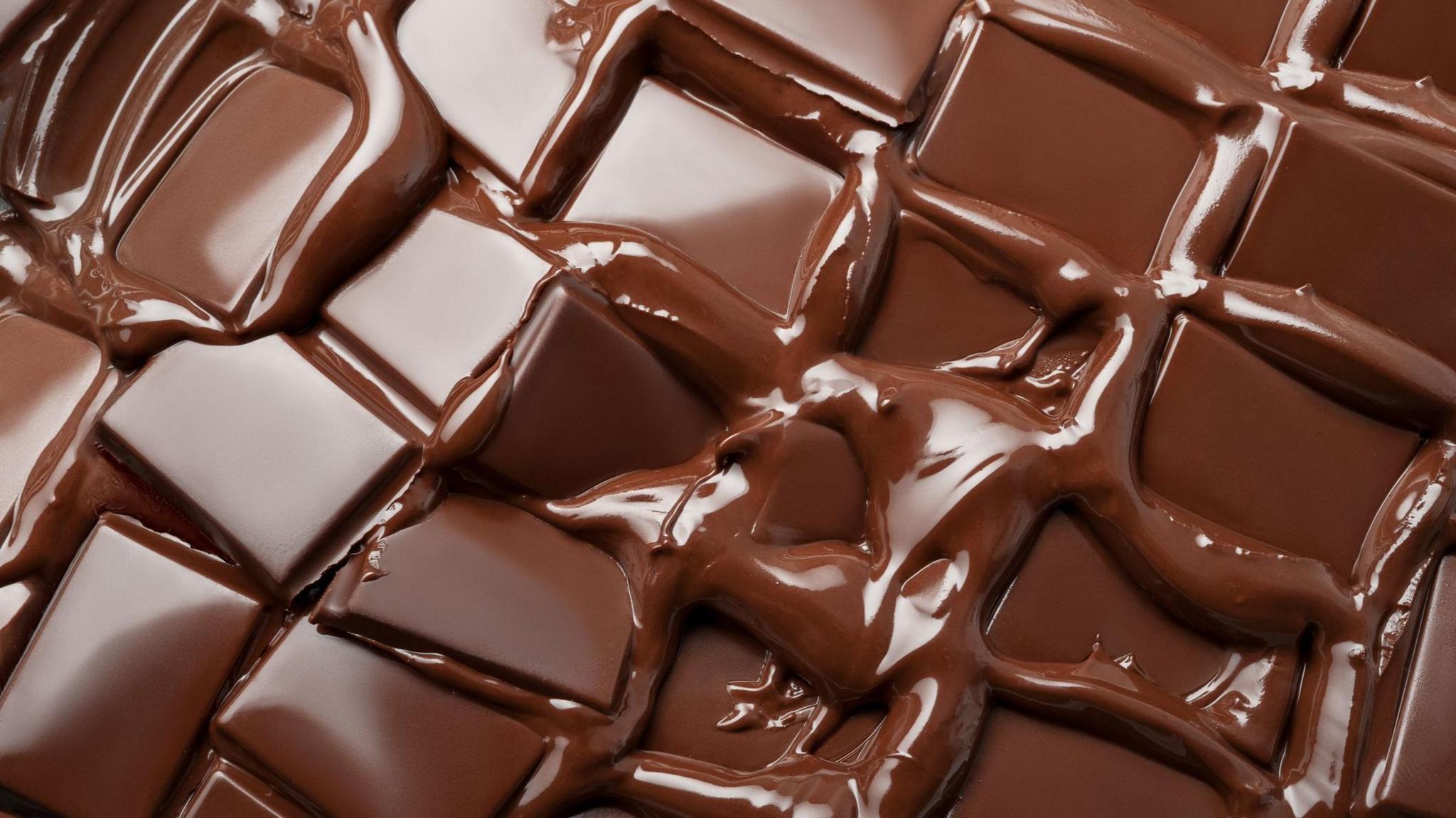
Rising global temperatures are causing the cost of chocolate to rise too
- Published
Whether we eat it daily, or save it up for special occasions and gifts - chocolate is one of the most popular sweet treats in the UK.
Evidence from US-based research group Climate Central shows that climate change is making cocoa - the main ingredient in chocolate - more difficult to grow.
This means that chocolate is becoming more expensive, and could become less available to us in the future.
And a separate report from UK charity Christian Aid says it is also having a negative affect on the farmers who help grow the plants used to make chocolate.
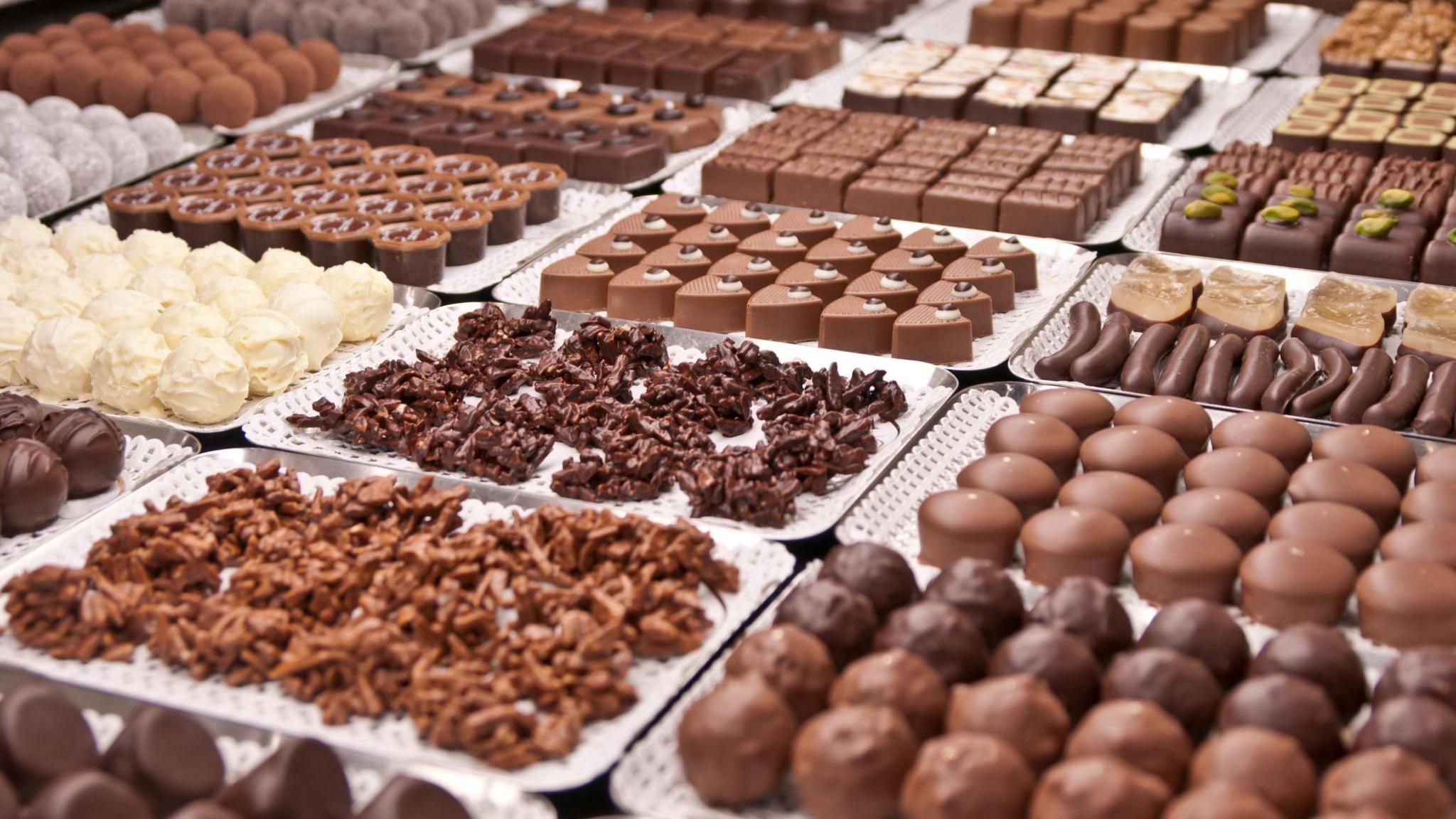
Have you noticed the price of chocolate going up in the shops?
Independent research group Climate Central measured temperatures in some of the world's biggest cocoa producing countries over ten years.
They found that climate change made the temperature too hot to grow cacao trees - the plant that makes cocoa beans - for three weeks a year.
Researchers said that "excessive heat can contribute to a reduction in the quantity and quality of the harvest".
This comes as UK charity Christian Aid also released a separate report looking at how global temperatures are affecting chocolate crops worldwide.
Why is chocolate getting more expensive? Video, 00:02:13
- Published5 April 2024
Earth has hottest year on record in 2024
- Published12 January
Are Easter eggs shrinking?
- Published26 March 2024
How is chocolate grown?
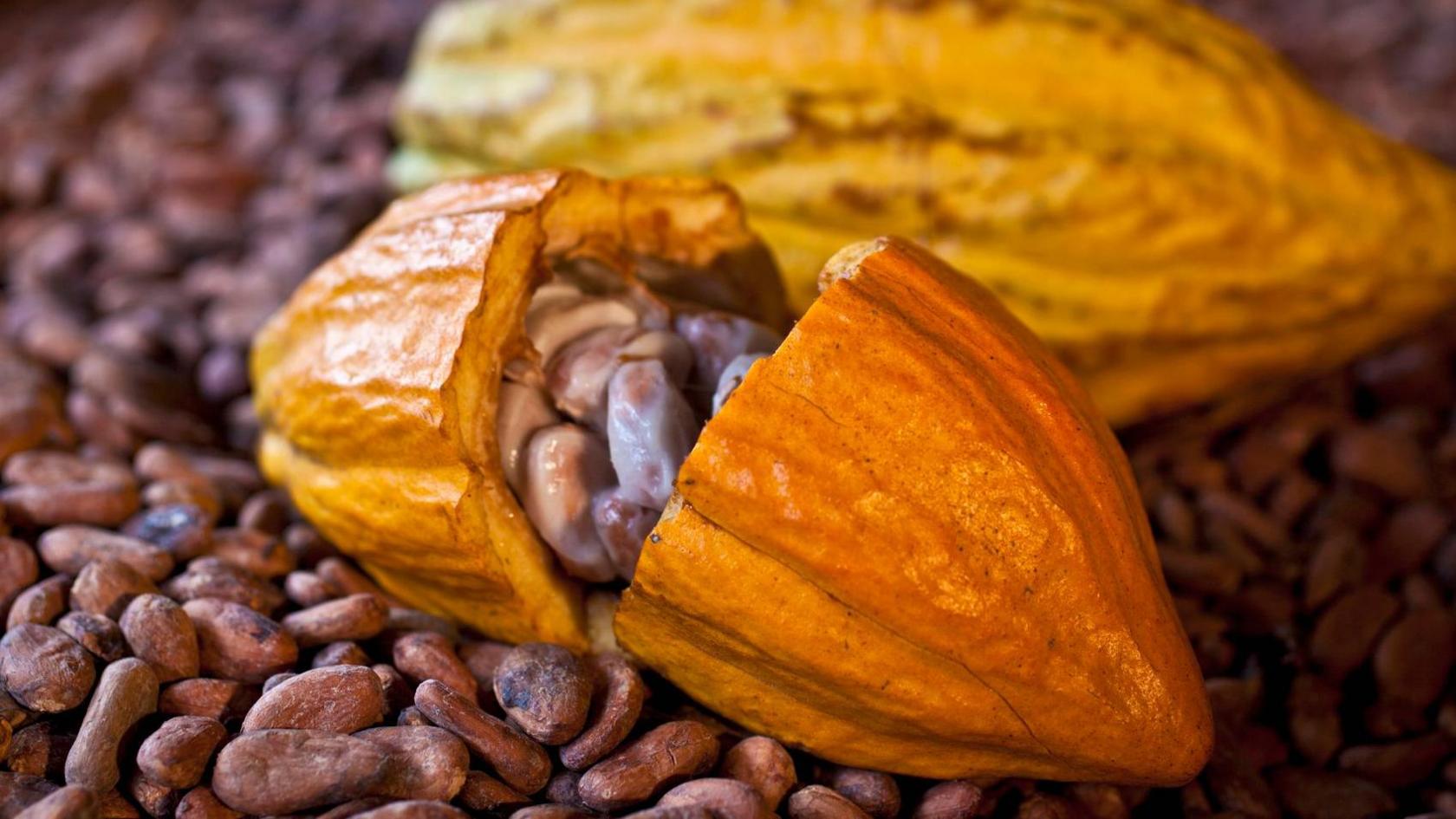
The pods are picked from the trees and opened to get to the cacao beans inside
Chocolate all starts with the cacao plant.
Cacao is the Spanish word for chcahuatl, which is what Aztecs called the beans grown on the plant that chocolate is made from.
It's thought that English traders misspelled cacao when they brought the beans home, and so cocoa stuck.
While it grows natively in South and Central America, it's now grown in West Africa, particularly in Ghana and the Ivory Coast.
The cacao crops in West Africa are responsible for over half of the world's chocolate production.
Why is climate change affecting cacao harvests?
The report says "climate change, due primarily to burning oil, coal, and methane gas, is causing hotter temperatures to become more frequent".
Cacao plants shouldn't grow in temperatures hotter than 32 degrees Celsius (89.6 Fahrenheit).
If it gets hotter than that, the plants die and the cacao beans can't be harvested.
Climate Central's report found in the last decade that climate change had added an extra three weeks of above 32C heat in Ivory Coast and Ghana during the main growing season between October and March.
Cameroon and Nigeria were also studied in the report.
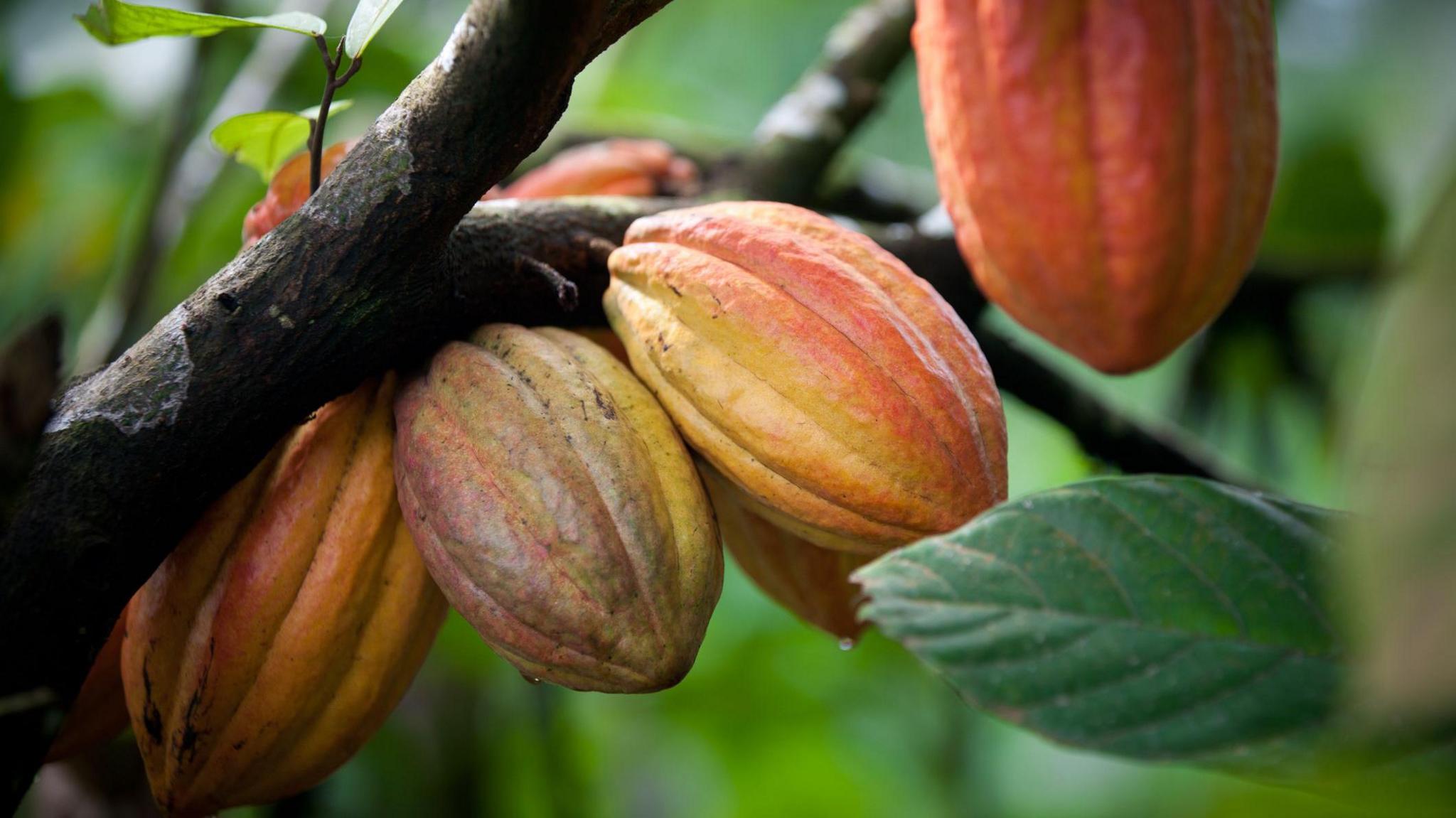
32 degrees Celsius is the optimum temperature for cacao to grow
Last year, the hottest year globally on record, the researchers found that climate change drove temperatures above 32C on at least 42 days across two thirds of all the areas analysed.
With fewer crops to harvest, the price of harvested cocoa beans has gone up.
Prices of cocoa around the world surged by 136% between July 2022 and February 2024, and the report says these increasing temperatures are partially to blame.
But more rainfall and insect infestation have also been creating difficulties.
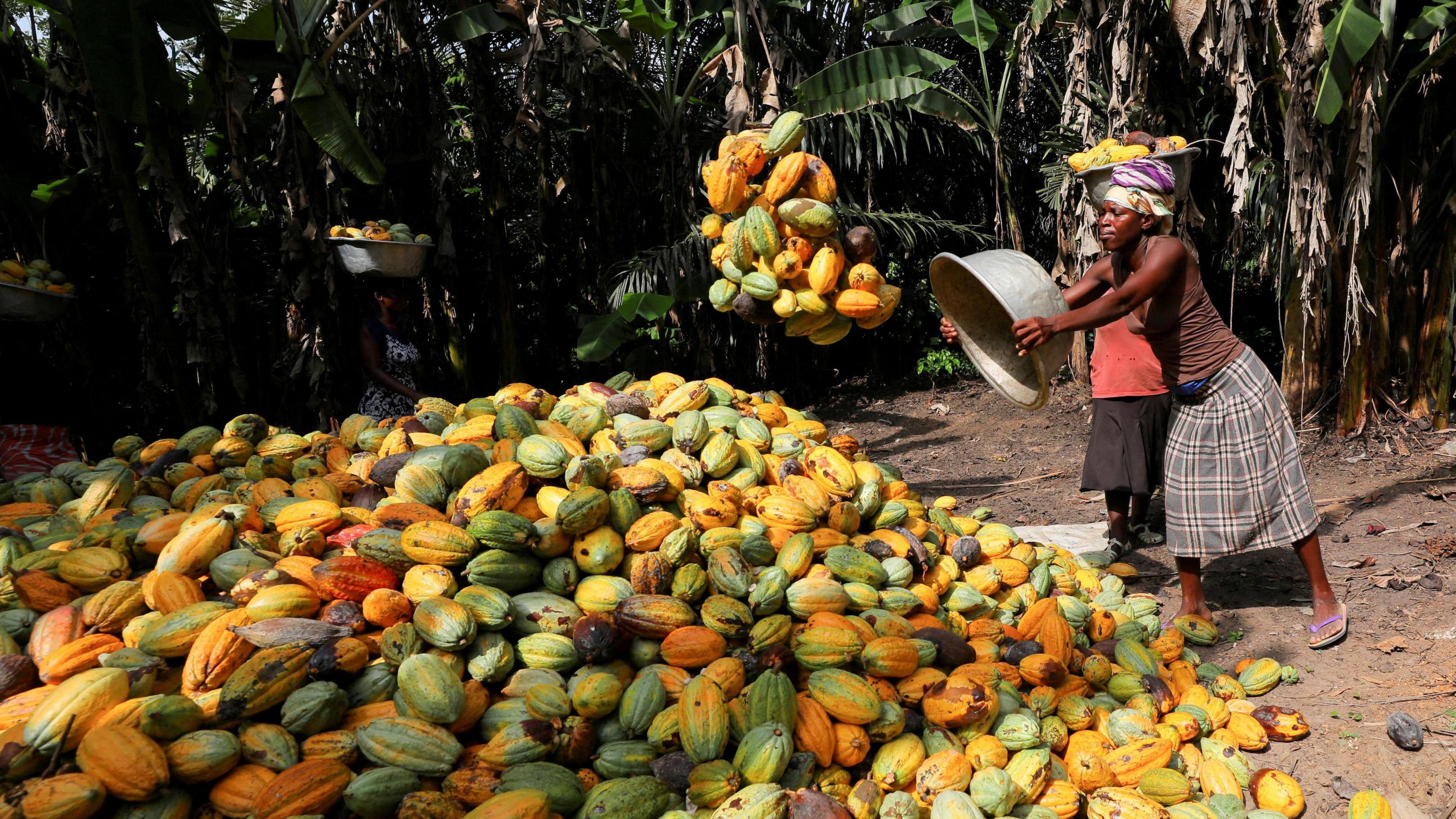
Cacao farmers are being impacted by the high temperatures
This has a massive affect on the farmers who have less cocoa to sell.
Christian Aid noted that the rising prices of cocoa is having a negative affect on the farmers responsible for its production.
"Growing cocoa is a vital livelihood for many of the poorest people around the world and human caused climate change is putting that under serious threat," said Osai Ojigho, director of Christian Aid's policy and public campaigns.
